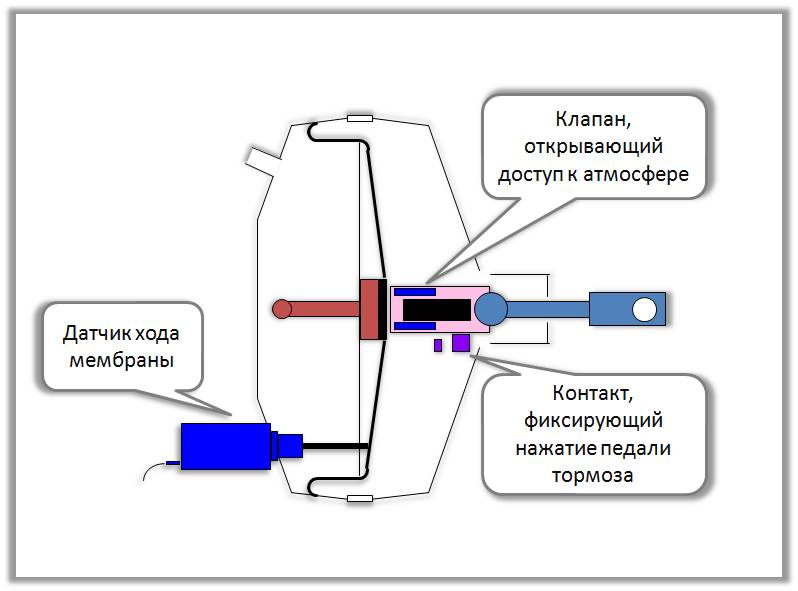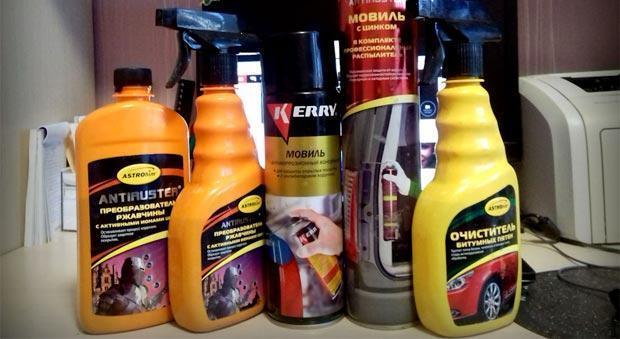
Movil with rust converter. Works or not?
Application of Movil with a rust converter
Movil with a rust converter is produced by such well-known domestic manufacturers of anticorrosive agents as Astrokhim and Eltrans (in the form of an aerosol), NKF (in the form of a liquid). The form of the converter may be different, but the mechanism of action is the same: the substance penetrates into the loose layer of the forming rust, displaces the iron dioxide molecules to the surface and deactivates them with synthetic resins, which are the essential components of Movil. Rust loses its chemical activity, turns into a neutral mass and crumbles from the surface.
More complex is the effect of rust converters based on tannic acid: they cause surface mechano-chemical reactions, as a result of which tannic acid salts are formed, which actively protect the surface of steel parts of the car.
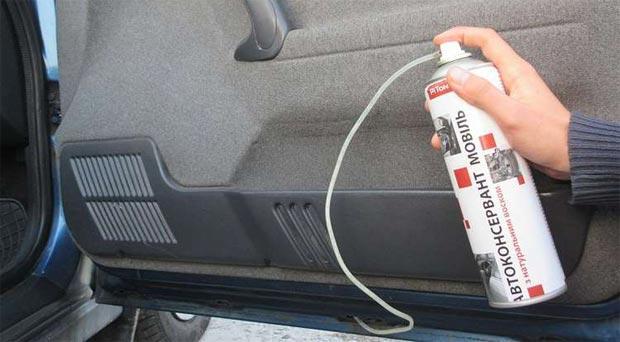

By the way, derivatives of phosphoric acid, which actively dissolve iron oxides, also have similar properties. Therefore, surfactants are also included in the composition of a number of varieties of Movil with a rust converter. The disadvantage of phosphates is that after treatment, the surface should be washed immediately and then re-treated.
Movil with zinc
Patenting new compositions of "their" Movil, manufacturers often look for alternative ways to add components that enhance the anti-corrosion properties of the original composition. Among the most common is zinc. Usually it is part of protective primers for metal, however, judging by the reviews, it also has a positive effect as part of anti-corrosion coatings.
Unlike sparingly soluble iron tannates, zinc dioxide, which is formed as a result of reactions, in a humid environment is a rather plastic component, and the rate of formation of oxides will not slow down. But zinc will show maximum activity only when the original surface of the metal is completely cleaned of rust. Therefore, Movil with zinc is not effective on any, but only on the prepared surface of steel parts. The end result is achieved not mechanically, but electrochemically.
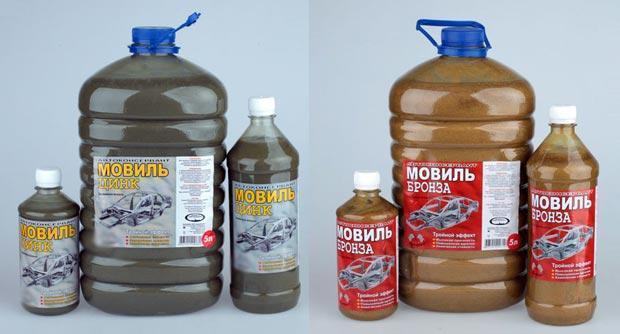

Based on these considerations, both zinc and tannic acid are introduced into some of Movil's formulas.
Movil with wax
Movil, which contains natural wax, is produced by the trademark Piton. The presence in the composition of the considered anticorrosive of such high-molecular substances significantly increases the elasticity of the surface film formed during processing, which is better preserved during shocks and impacts.
When using Movil containing wax (paraffin or ceresin can also be used instead of wax), the following should be considered:
- Since wax is chemically passive, such Movil will not stop the process of oxide formation that has already begun. Therefore, the surface prepared for processing must be carefully cleaned from rust.
- The presence of wax and its substitutes negatively affects the strength of rubber. All rubber and rubber-fabric products should be covered, especially if the treatment is carried out with an aerosol.
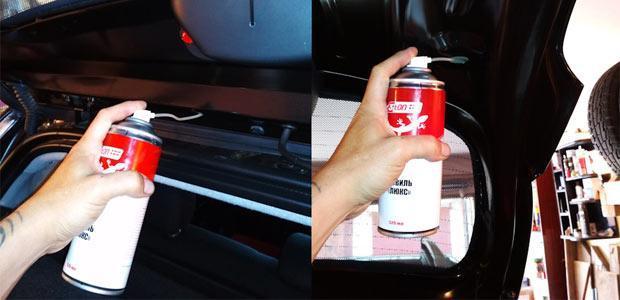

- At elevated temperatures in the room, as well as near sources of open flame, the density of the wax decreases sharply, which will adversely affect the adhesive properties of the surface film.
- Since the density of Movil with wax is higher than the traditional one, spraying should be carried out using an air gun, using an external source of compressed air with a pressure of at least 5 bar (not all motorists have a compressor).
The remaining characteristics of the use of such Movil do not differ from conventional brands.


Watch this video on YouTube
